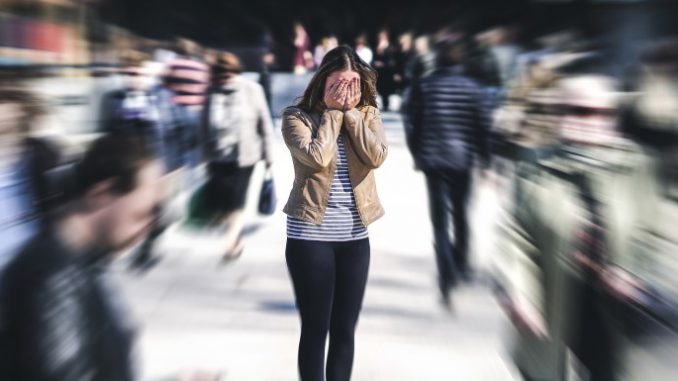
Following the complicated adaptation period to a new lifestyle due to the current pandemic, we are now forced to resume a rhythm that we had put aside for many weeks. While some people are delighted at the idea of being reunited with their loved ones, their professional activity and their freedom of movement, others may feel overwhelmed at the thought of coming out of their bubble.
This feeling may arise from a fear of being infected, but also from the simple fact of getting out of one’s home and confronting the outside world. This may happen as people resume normal routine and activities, in a context marked by the continuing risk of the spread of the Coronavirus.
Many experts warn: if confinement was misunderstood for claustrophobia (the fear of being locked up), the return to “real life” may lead to new phobias among individuals. Agoraphobia, anthropophobia, or even blemmophobia are generally cited as the most common phobias.
Is deconfinement not liberating?
When the confinement was lifted on June 25, we were able to go out again, resume transport and visit certain public places, while of course respecting sanitary conditions. We were able to meet other people and this may have aroused anguish, anxiety or concern.
First of all, the fear of being contaminated by the virus and of being sick because the virus is still circulating. This fear has been all the more reinforced in public transport, a closed and anxiety-provoking space that constantly confronts us with others and does not always allow the recommended social distancing.
“When humans are afraid and feel powerless in the face of an uncertain situation, they experience an explosion of agoraphobia”.
This was predictable: the fear of being confined spread faster through society than the Coronavirus itself. With deconfinement, it also risks facilitating the emergence of another form of epidemic… an epidemic of agoraphobia and anxiety in both public and private spaces, side effects of an increasingly uncertain fight against Covid-19.
Some patients mention the development of an agoraphobic tendency. At the time of deconfinement, this is normal. On the other hand, in the long run, it will be annoying…
According to the specialists, everyone can be confronted with these anxiety attacks caused by this fear of the other. Even people who are already psychologically fragile, socially isolated, or prone to depressive episodes are more likely to experience these anxieties. People who have been forced to continue their activity in the last two months will certainly have fewer difficulties than those who have been confined to their homes.
“During the first day of the deconfinement, I noticed that there were too many people in a store. I didn’t feel safe even though I was wearing my mask.”
However, the various social phobias can be prevented or even defused before the situation gets out of hand. A doctor advises an active approach. At the first signs of anxiety, we can change this apprehension by putting words to what we are experiencing. Talk to your loved ones and try to express the inner conflict you are experiencing.




Be the first to comment